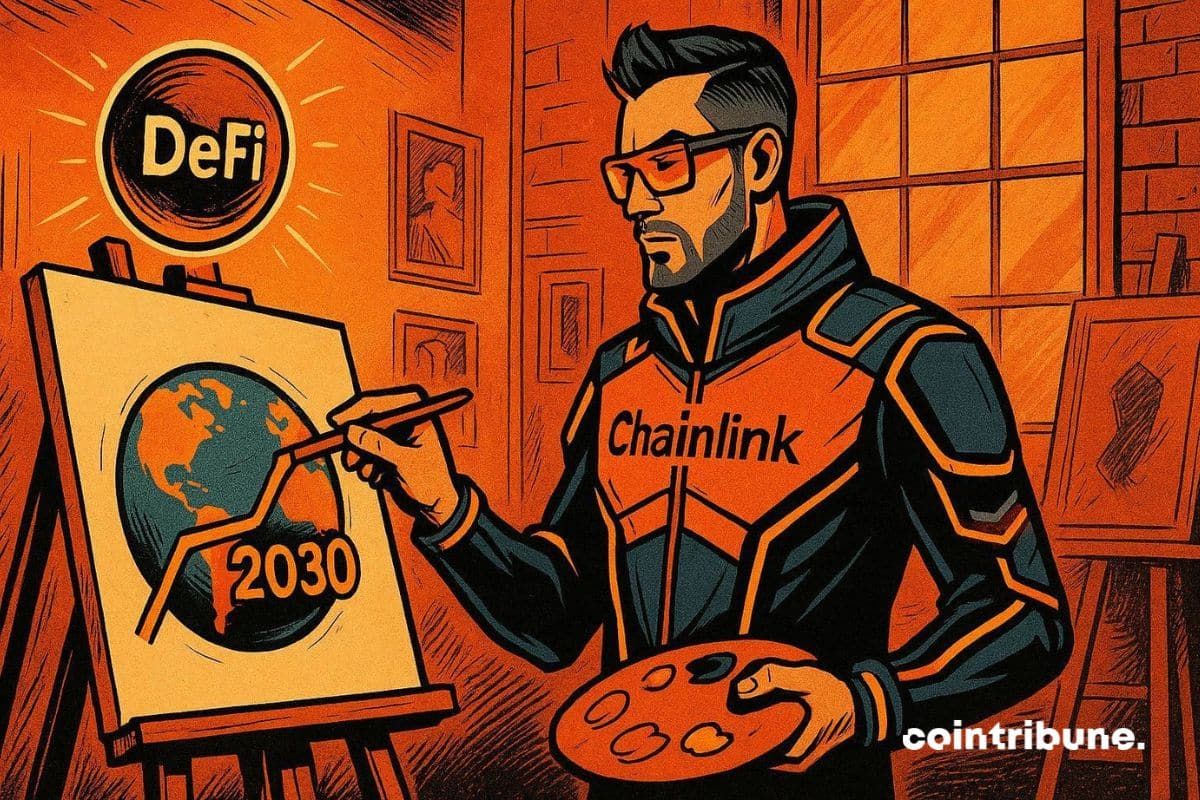Blockchain-Driven Governance: The Philippines’ Strategic Move to On-Chain Budgeting and Its Global Investment Implications
- The Philippines leverages Polygon and BayaniChain to create a blockchain-based, tamper-proof public finance system via Project Marissa. - Key documents like SAROs and NCAs are anchored on Polygon, enabling citizen access through QR codes and online portals to combat corruption. - The initiative aligns with a 2023 "INVISIBLE Government" vision, using BayaniChain’s Prismo Protocol to balance transparency with data privacy. - Market projections show Polygon’s POL token reaching $0.78 by 2025, while the Phil
The Philippines is emerging as a global leader in blockchain-driven governance, leveraging Polygon and BayaniChain to transform public finance into a transparent, tamper-proof system. By anchoring key budgetary documents—such as Special Allotment Release Orders (SAROs) and Notices of Cash Allocation (NCAs)—on the Polygon blockchain, the Department of Budget and Management (DBM) has created an immutable audit trail accessible to citizens via QR code scanning or online portals [1]. This initiative, part of Project Marissa, not only combats corruption but also aligns with the DBM’s 2023 vision of an “INVISIBLE Government,” where digital services are secure, efficient, and trustless [3].
The Technological Backbone: Polygon and BayaniChain
Polygon’s role as the consensus layer for this system is pivotal. The platform’s Proof-of-Stake architecture offers scalability and energy efficiency, critical for handling high-volume government transactions [2]. Meanwhile, BayaniChain’s Lumen Blockchain-as-a-Service (BaaS) platform provides the technical infrastructure, including the Prismo Protocol, which balances transparency with data privacy by determining which information is publicly accessible [3]. This partnership underscores the Philippines’ strategic adoption of blockchain to address systemic challenges in governance, such as information asymmetry and document forgery [1].
The market potential for these technologies is substantial. Polygon’s native token, POL, is projected to reach $0.78 by 2025, driven by its integration into public sector projects and the launch of Polygon 2.0, which enhances scalability and security [4]. BayaniChain, though not publicly traded, has positioned itself as a key enabler of the DBM’s blockchain initiatives, suggesting long-term growth as demand for secure governance solutions rises [3].
Economic and Investment Implications
The Philippines’ blockchain ecosystem is attracting global attention, with the country’s blockchain market forecasted to grow at a 28.6% CAGR, reaching $38.92 billion by 2031 [4]. This growth is fueled by regulatory innovation, such as the Crypto-Asset Reporting Framework (CARF) and the Bangko Sentral ng Pilipinas’ Regulatory Sandbox, which have drawn $102.5 million in crypto startup investments since 2024 [2]. Additionally, the proposed Strategic Bitcoin Reserve Act—aiming to acquire 10,000 BTC over five years—positions the Philippines as a pioneer in institutional Bitcoin adoption, diversifying its $285 billion national debt portfolio and hedging against fiat volatility [1].
For investors, the Philippines offers a unique confluence of ESG-driven opportunities and macroeconomic stability. The country’s BBB credit rating, combined with a 74% public trust in blockchain technology, creates a fertile ground for blockchain infrastructure firms [4]. Startups like PDAX and Coins.ph, which have raised significant capital, exemplify the sector’s potential [2]. Moreover, the integration of blockchain into sectors beyond finance—such as agriculture and logistics—further diversifies investment avenues [4].
Strategic Investment Opportunities
- Polygon (POL): As the backbone of the DBM’s blockchain system, Polygon’s adoption in public finance could drive demand for its infrastructure, supporting long-term price appreciation.
- BayaniChain: While not publicly listed, the firm’s role in high-impact governance projects positions it as a key player in the Philippines’ blockchain ecosystem. Investors may gain exposure through regional tech ETFs or partnerships.
- Blockchain ETFs: Funds like BLOK and DAPP , which aggregate holdings in blockchain infrastructure firms, offer diversified access to the sector’s growth [2].
- Strategic Bitcoin Reserves: The Philippines’ proposed BTC acquisition highlights the growing institutional interest in Bitcoin as a store of value, potentially boosting demand for crypto custody solutions [1].
Challenges and Considerations
Despite its promise, the Philippines’ blockchain initiatives face hurdles. Scalability concerns, political will, and public education remain critical challenges [4]. Additionally, regulatory clarity around DeFi and cross-border transactions is still evolving [2]. However, the country’s proactive approach—coupled with its young, tech-savvy population and English proficiency—positions it as a regional hub for blockchain innovation [4].
Conclusion
The Philippines’ on-chain budgeting system represents a paradigm shift in governance, offering a blueprint for transparency and accountability in emerging markets. For forward-looking investors, the integration of Polygon and BayaniChain into public finance, alongside the country’s regulatory advancements, presents a compelling opportunity to capitalize on blockchain’s transformative potential. As the Philippines continues to pioneer this space, it may well become a model for global governance innovation—and a cornerstone of the next wave of digital investment.
Disclaimer: The content of this article solely reflects the author's opinion and does not represent the platform in any capacity. This article is not intended to serve as a reference for making investment decisions.
You may also like
Donating 256 ETH, Vitalik Bets on Private Communication: Why Session and SimpleX?
What differentiates these privacy-focused chat tools, and what technological direction is Vitalik betting on this time?

Ethereum Raises Its Gas Limit to 60M for the First Time in 4 Years

DeFi: Chainlink paves the way for full adoption by 2030

BitMine Extends Ethereum Buying Spree With Reported $44M ETH Acquisition
